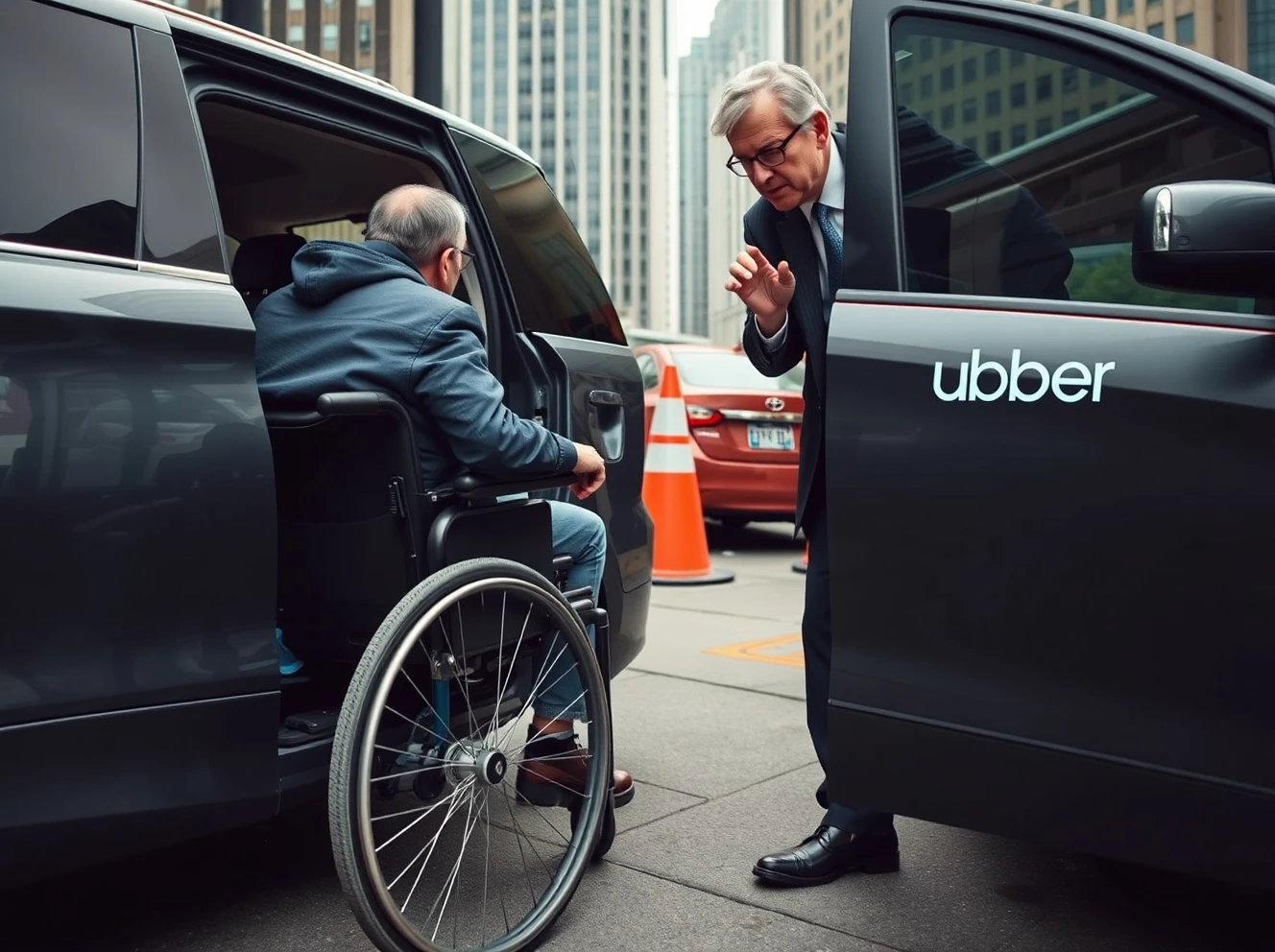The U.S. Justice Department has launched a significant legal battle against Uber, alleging systematic discrimination against passengers with disabilities in a groundbreaking lawsuit that could reshape accessibility standards across the ride-hailing industry.
Uber Disability Discrimination Lawsuit Details
The Justice Department filed this lawsuit in California’s Northern District federal court. Consequently, they accuse Uber of violating the Americans with Disabilities Act. Specifically, investigators found drivers routinely refusing service to people with physical disabilities. Moreover, the company allegedly charges extra fees for necessary accommodations. Additionally, Uber imposes cancellation fees when drivers deny service to disabled riders.
Historical Pattern of Uber Disability Discrimination
This lawsuit represents not an isolated incident but rather a continuing pattern. Previously, the DOJ sued Uber in 2021 for overcharging disabled passengers. Subsequently, the company reached a 2022 settlement paying millions to affected users. Furthermore, numerous individual lawsuits have targeted Uber’s accessibility practices. Public protests have also highlighted these ongoing accessibility issues.
Specific Allegations in the Discrimination Case
The complaint outlines several critical violations. Firstly, drivers regularly refuse service to people with service animals. Secondly, passengers using stowable wheelchairs face consistent access barriers. Thirdly, Uber charges inappropriate fees for disability accommodations. Finally, the company fails to modify policies for equal access.
Impact on Disabled Riders
This discrimination causes significant harm to affected individuals. Economically, passengers face financial burdens from unfair fees. Emotionally, repeated denials create distress and frustration. Physically, transportation barriers limit mobility and independence. Ultimately, these practices deny equal enjoyment of services.
Uber’s Response and Previous Actions
Uber has not immediately commented on the new lawsuit. However, the company implemented a service animal self-identification feature in 2024. This followed DOJ notification of their investigation. Despite previous settlements, discrimination patterns apparently continue. The company faces mounting legal and public pressure.
Legal Implications and Future Proceedings
This case could establish important precedents for ride-hailing services. The Americans with Disabilities Act applies clearly to transportation providers. Federal courts will determine appropriate remedies and penalties. Other companies may face similar scrutiny regarding accessibility compliance.
Frequently Asked Questions
What specific violations does the Justice Department allege?
The DOJ claims Uber violates ADA requirements by refusing service animals, denying wheelchair access, charging illegal fees, and failing to modify policies for disabled riders.
How many people are affected by Uber’s alleged discrimination?
While exact numbers remain undisclosed, Uber’s 2022 settlement involved over 65,000 users, suggesting widespread impact across their customer base.
What penalties could Uber face if found liable?
Potential consequences include substantial financial penalties, mandatory policy changes, compliance monitoring, and compensation for affected individuals.
Has Uber faced similar legal action before?
Yes, the DOJ previously sued Uber in 2021 for overcharging disabled passengers, resulting in a multi-million dollar settlement in 2022.
What changes has Uber made regarding disability access?
Uber introduced a service animal self-identification feature in 2024, though the DOJ alleges this insufficiently addresses systemic discrimination issues.
How does this case affect other ride-hailing services?
This lawsuit could establish important legal precedents requiring all transportation providers to ensure equal access and accommodation for disabled passengers.








